Cancer Treatment Centers of America
Introduction
Cancer is one of the most debilitating diseases affecting a person’s life. The path to recovery can be challenging and complicated for those diagnosed with cancer. Fortunately, Cancer Treatment Centers of America (CTCA) is at the forefront of cancer care, providing innovative treatments and therapies that help patients achieve optimal outcomes.
Cancer Treatment Centers of America is a national network of five comprehensive cancer care hospitals in the United States. CTCA was founded in 1988 by Richard J Stephenson, whose mother died from cancer. This experience led him to establish CTCA to provide comprehensive, patient-centered cancer care. CTCA has since grown into one of the country’s most recognized cancer care providers, providing cutting-edge treatments and therapies to patients from all over the world.
In this article, we will delve into the world of CTCA and explore how Cancer Treatment Centers of America are revolutionizing cancer care.
Read this: Dog Flu Symptoms
Comprehensive Cancer Care

One of the defining characteristics of CTCA is its commitment to providing comprehensive cancer care. They offer a wide range of services that cater to every aspect of a patient’s journey. CTCA’s approach to care includes traditional treatments such as chemotherapy, radiation therapy, and surgery and complementary therapies such as acupuncture, nutrition therapy, and mind-body medicine. This comprehensive approach to care is essential in helping patients achieve optimal outcomes. ( Cancer Treatment Centers of America )
Cancer is a devastating disease that affects millions of people each year. According to the American Cancer Society, it is estimated that over 1.9 million new cancer cases will be diagnosed in the United States in 2023. Fortunately, advances in cancer research and treatment have led to significant improvements in cancer care over the past few decades. ( Cancer Treatment Centers of America )
Understanding Cancer and its Treatment
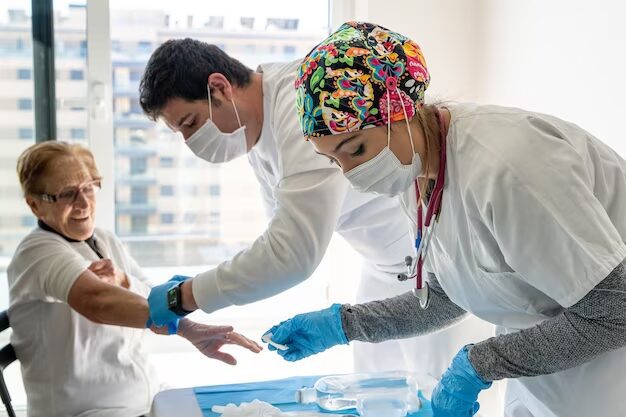
Cancer is a complex disease that occurs when abnormal cells in the body grow and divide uncontrollably. These cells can invade nearby tissues and spread to other body parts. There are many different types of cancer, each with unique characteristics and treatment options.
The three primary types of cancer treatment are surgery, radiation therapy, and chemotherapy. Surgery involves removing the cancerous cells or tumors from the body. Radiation therapy uses high-energy radiation to destroy cancer cells. Chemotherapy consists of the use of drugs to kill cancer cells. Other types of cancer treatment include immunotherapy, targeted therapy, and hormone therapy. ( Cancer Treatment Centers of America )
The Importance of Comprehensive Cancer Care
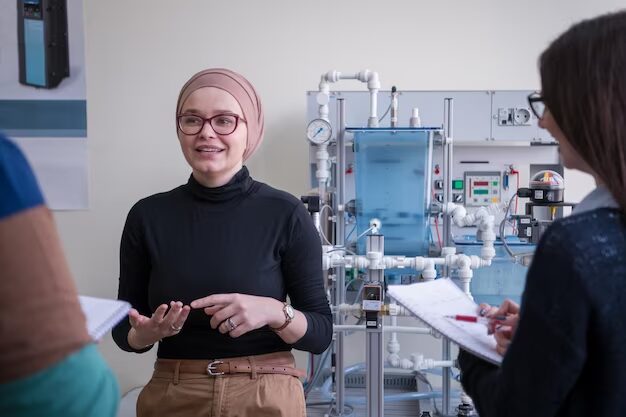
Comprehensive cancer care involves treating the whole person, not just the disease. This approach considers a patient’s physical, emotional, and spiritual needs throughout the cancer journey. It involves a team of healthcare professionals, including doctors, nurses, social workers, and counselors, who work together to provide the best possible care. ( Cancer Treatment Centers of America )
In addition to medical treatment, comprehensive cancer care may include support services such as nutrition counseling, pain management, and rehabilitation. These services can help patients manage cancer treatment’s physical and emotional side effects and improve their overall quality of life. ( Cancer Treatment Centers of America )
Read this: Best Household Hacks
Finding Support during the Cancer Journey

A cancer diagnosis can be overwhelming, but many resources are available to help patients and their families cope with the disease. Support can come in many forms, including support groups, counseling services, and educational programs.
Support groups provide a safe and supportive environment for cancer patients and their loved ones to share their experiences and emotions. Counseling services can help patients and their families manage the stress and anxiety often accompanying a cancer diagnosis. Educational programs can provide patients valuable information about their diagnoses and treatment options. ( Cancer Treatment Centers of America )
Advanced Technology

Cancer is a complex and formidable disease that has affected millions of people worldwide. It is the second leading cause of death in the United States, with an estimated 609,640 deaths in 2021 alone. With such a staggering number, it is no wonder that medical researchers and scientists have been relentlessly searching for better ways to treat and cure cancer. Thanks to advances in technology, there have been significant breakthroughs in cancer diagnosis, treatment, and management.
CTCA is also known for its use of advanced technology in cancer care. They use state-of-the-art equipment to diagnose and treat cancer, including 3D mammography, robotic surgery, and precision radiation therapy. This technology allows for more accurate diagnoses and precise treatment planning, ultimately leading to better patient outcomes.
We will look at different types of cancer treatments, including surgery, radiation therapy, chemotherapy, immunotherapy, targeted therapy, and precision medicine. ( Cancer Treatment Centers of America )
Surgery

Surgery is one of the oldest forms of cancer treatment, and it remains one of the most effective ways to remove cancerous tumors from the body. Thanks to advances in surgical techniques, such as minimally invasive surgery, surgeons can now remove tumors with less damage to healthy tissues. One of the newest techniques in cancer surgery is robotic-assisted surgery, which involves using a robot to perform complex surgical procedures with greater precision and accuracy. ( Cancer Treatment Centers of America )
Radiation Therapy
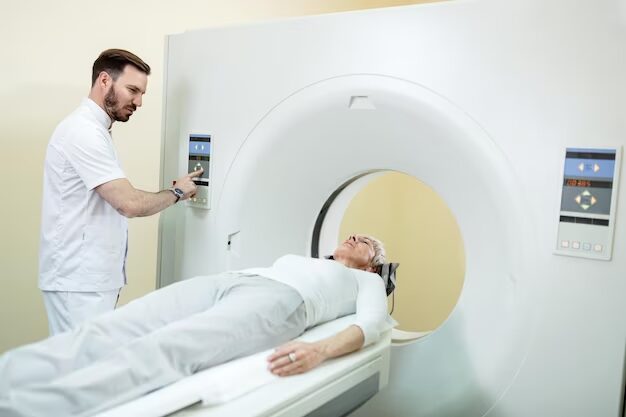
Radiation therapy uses high-energy radiation to kill cancer cells or slow their growth. It is a standard treatment option for many types of cancer, including breast, lung, prostate, and brain cancer. The latest advances in radiation therapy technology include stereotactic radiosurgery, intensity-modulated radiation therapy, and proton therapy. These techniques allow doctors to deliver higher doses of radiation directly to cancerous tumors while minimizing damage to healthy surrounding tissues. ( Cancer Treatment Centers of America )
Chemotherapy

Chemotherapy is a cancer treatment that uses drugs to kill cancer cells. It is often used with surgery or radiation therapy to destroy cancerous cells that may have spread to other body parts. New chemotherapy drugs have been developed that are more effective in killing cancer cells and have fewer side effects than older drugs. Additionally, researchers are exploring the use of nanotechnology in drug delivery, which could improve the effectiveness of chemotherapy by delivering drugs directly to cancer cells. ( Cancer Treatment Centers of America )
Immunotherapy

Immunotherapy is a relatively new form of cancer treatment that harnesses the power of the immune system to fight cancer. It boosts the body’s natural defenses to identify and destroy cancer cells. Different types of immunotherapies include checkpoint inhibitors, CAR T-cell therapy, and cancer vaccines. These treatments have shown remarkable success in treating some of the deadliest forms of cancer, including melanoma, lung cancer, and leukemia. ( Cancer Treatment Centers of America )
Read this: Ultimate Tips to Clean your Home
Targeted Therapy

Targeted therapy is a type of cancer treatment that targets specific genes, proteins, or other molecules that contribute to the growth and spread of cancer cells. It is a more precise form of treatment than traditional chemotherapy, which can also damage healthy cells. Some of the latest targeted therapy drugs include PARP inhibitors, BRAF inhibitors, and HER2 inhibitors. ( Cancer Treatment Centers of America )
Precision Medicine
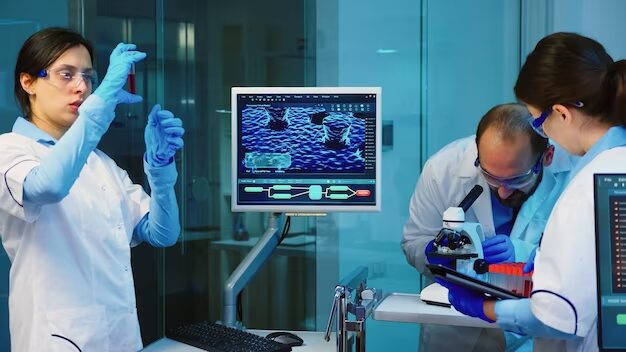
Precision medicine is an innovative approach to cancer treatment that considers a person’s unique genetic makeup and other individual factors, such as their environment and lifestyle. By analyzing a patient’s genetic profile, doctors can identify specific mutations driving cancer growth and develop targeted treatments tailored to each patient’s unique needs. This approach to cancer treatment is still in its early stages, but it holds great promise for the future of cancer care. ( Cancer Treatment Centers of America )
Personalized Treatment Plans

Another hallmark of CTCA is its commitment to developing personalized treatment plans for each patient. CTCA’s oncologists, surgeons, and other cancer specialists work together to create a treatment plan tailored to the patient’s specific needs. This personalized approach ensures that each patient receives the most effective treatment for their particular type of cancer. ( Cancer Treatment Centers of America )
Personalized treatment plans are a new way of providing healthcare that considers each patient’s unique needs. Rather than providing a one-size-fits-all approach to treatment, healthcare providers work with patients to create a plan tailored to their medical conditions, lifestyle, and personal preferences. This approach allows for more effective treatment and can lead to better outcomes. ( Cancer Treatment Centers of America )
Benefits of Personalized Treatment Plans
There are several benefits to personalized treatment plans. First and foremost, they are more effective than traditional approaches to healthcare. By tailoring treatment to each patient’s unique needs, healthcare providers can address specific medical conditions more effectively, leading to better outcomes. Additionally, personalized treatment plans can help patients better understand their medical conditions and the treatments available to them, empowering them to take a more active role in their healthcare. ( Cancer Treatment Centers of America )
Another benefit of personalized treatment plans is that they can be more cost-effective in the long run. While the initial cost of creating a customized treatment plan may be higher than a traditional approach, the long-term benefits can more than make up for it. By addressing medical conditions more effectively, patients may require fewer medical interventions in the future, leading to lower healthcare costs over time. ( Cancer Treatment Centers of America )
How Personalized Treatment Plans Are Changing Healthcare?
Personalized treatment plans are changing the face of healthcare in several ways. First, they are helping to shift the focus of healthcare from treatment to prevention. By tailoring treatment to each patient’s unique needs, healthcare providers can address medical conditions before they become more serious, leading to better health outcomes.
Additionally, personalized treatment plans are helping to improve patient engagement in their healthcare. By involving patients in creating their own treatment plans, healthcare providers empower them to take a more active role in their health. This can lead to better adherence to treatment plans and overall health outcomes. ( Cancer Treatment Centers of America )
Finally, personalized treatment plans are helping to improve healthcare outcomes overall. By tailoring treatment to each patient’s unique needs, healthcare providers can address medical conditions more effectively, leading to better health outcomes and a higher quality of life for patients.
Clinical Trials
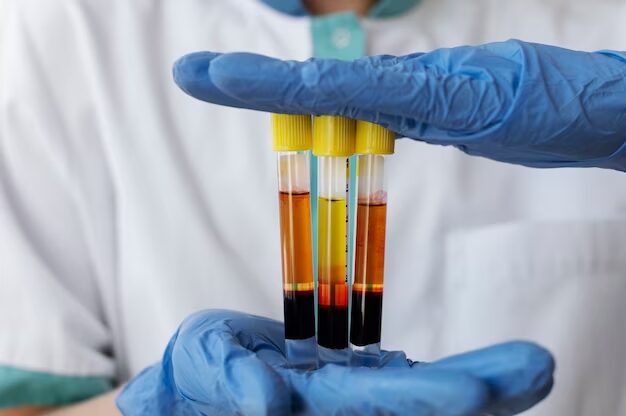
Clinical trials are research studies that involve human participants. These studies are designed to evaluate the safety and effectiveness of new treatments or procedures and are conducted according to strict scientific standards. Clinical trials are conducted in phases, with each phase building on the results of the previous one. The ultimate goal of clinical trials is to determine whether a new treatment is safe and effective enough to be approved by the Food and Drug Administration (FDA) for use in patients. ( Cancer Treatment Centers of America )
CTCA is also actively involved in conducting clinical trials for new cancer treatments. These trials are designed to evaluate the safety and efficacy of new therapies, and CTCA is often one of the first institutions to offer these treatments to patients. By participating in these trials, CTCA is helping advance cancer care and improve patient outcomes worldwide.
Why are Clinical Trials Important?

Clinical trials are essential for the development of new cancer treatments. Without clinical trials, it would be impossible to determine whether a new treatment is safe and effective. Clinical trials also help to identify potential side effects and risks associated with new therapies, which is essential for patient safety. In addition, clinical trials allow researchers to understand better the disease and how it progresses, which can lead to new insights and treatment options. ( Cancer Treatment Centers of America )
Phases of Clinical Trials
Clinical trials for cancer are typically conducted in three phases, each with a different objective.
Phase I
Phase I clinical trials are the first step in evaluating a new treatment. These trials involve a small group of patients with advanced cancer who have not responded to standard therapies. The primary objective of Phase I clinical trials is to determine the safety and dosage of the new treatment. Researchers closely monitor patients for adverse reactions to the treatment and adjust the dosage as needed. ( Cancer Treatment Centers of America )
Phase II
Phase II clinical trials involve a larger group of patients and are designed to evaluate the effectiveness of the new treatment. These trials are conducted in patients with a specific type of cancer who have not responded to standard therapies. The primary objective of Phase II clinical trials is to determine whether the new treatment effectively treats the targeted type of cancer.
Phase III
Phase III clinical trials involve an even larger group of patients and are designed to compare the new treatment with standard treatments. These trials are conducted in patients with a specific type of cancer who have not responded to traditional therapies. The primary objective of Phase III clinical trials is to determine whether the new treatment is as effective as, or better than, common treatments.
Read this: Benefits from Yoga and Meditation
How to Participate in a Clinical Trial?
Patients interested in participating in a clinical trial should speak with their doctor to determine whether they are eligible for a clinical trial. Eligibility criteria vary depending on the type of trial, but generally, patients must have a specific type of cancer and not have responded to standard treatments. Patients are eligible for a clinical trial will need to sign an informed consent form, which outlines the risks and benefits of participating in the trial. ( Cancer Treatment Centers of America )
Patient Experience

The cancer treatment journey can be an emotionally and physically draining experience for patients. The treatment process can be long and complicated, and patients want to feel they receive the best care possible. Cancer treatment centers play a significant role in the patient experience. They provide services that can help make the treatment process more comfortable and less stressful.
The patient experience refers to all interactions with a healthcare provider, from the first phone call to the final follow-up appointment. It encompasses everything from the quality of care to the facility’s atmosphere. The patient experience is vital as it can affect a patient’s overall satisfaction with their treatment and recovery.
CTCA places a high value on the patient experience and strives to create a warm, welcoming environment for patients and their families. They offer a range of amenities to make the patient’s stay as comfortable as possible, including private rooms, gourmet meals, and even massage therapy. CTCA also provides emotional support and counseling services to help patients cope with the emotional toll of cancer. ( Cancer Treatment Centers of America )
Factors that contribute to the patient experience in cancer treatment centers
Various factors can influence the patient experience in cancer treatment centers. One of the most critical factors is the quality of care provided. Patients want to feel that they are receiving the best care possible and that the medical staff is knowledgeable and compassionate. Other factors that can contribute to the patient experience include the physical environment, such as the cleanliness and comfort of the facility, as well as the staff’s level of communication and support. ( Cancer Treatment Centers of America )
The importance of patient-centered care

Patient-centered care is an approach to healthcare that places the patient at the center of the care experience. It prioritizes the patient’s needs and preferences and involves them in decision-making throughout treatment. Patient-centered care has improved patient satisfaction and health outcomes and even reduced healthcare costs. ( Cancer Treatment Centers of America )
Best cancer treatment centers in America for patient experience
Several cancer treatment centers in America are known for providing exceptional patient experiences. The Memorial Sloan Kettering Cancer Center in New York is renowned for its patient-centered approach and innovative treatments. The Mayo Clinic in Minnesota is another top-ranked cancer treatment center known for its world-class facilities and personalized care. Other notable cancer treatment centers include the MD Anderson Cancer Center in Texas, the Dana-Farber Cancer Institute in Massachusetts, and the University of California San Francisco Medical Center. ( Cancer Treatment Centers of America )
Improving the patient experience in cancer treatment centers
While many cancer treatment centers offer excellent patient experiences, there is always room for improvement. Cancer treatment centers can improve the patient experience by enhancing communication and support services, providing additional patient education resources, and prioritizing patient-centered care. It is also essential to regularly collect patient feedback and use it to make necessary improvements. ( Cancer Treatment Centers of America )
Best Cancer Treatment Centers of America
Cancer is a complex disease that requires specialized treatment from expert oncologists. Several well-known cancer treatment centers have earned a reputation for excellence in America. Below we will take a closer look at some of America’s most famous cancer treatment centers and what sets them apart. ( Cancer Treatment Centers of America )
MD Anderson Cancer Center

MD Anderson Cancer Center, located in Houston, Texas, is one of the world’s largest and most respected cancer treatment centers. It is consistently ranked as one of the top cancer centers in the United States and offers a comprehensive range of cancer treatment services. MD Anderson has a team of over 1,500 physicians and scientists specializing in cancer research and treatment. ( Cancer Treatment Centers of America )
Memorial Sloan Kettering Cancer Center
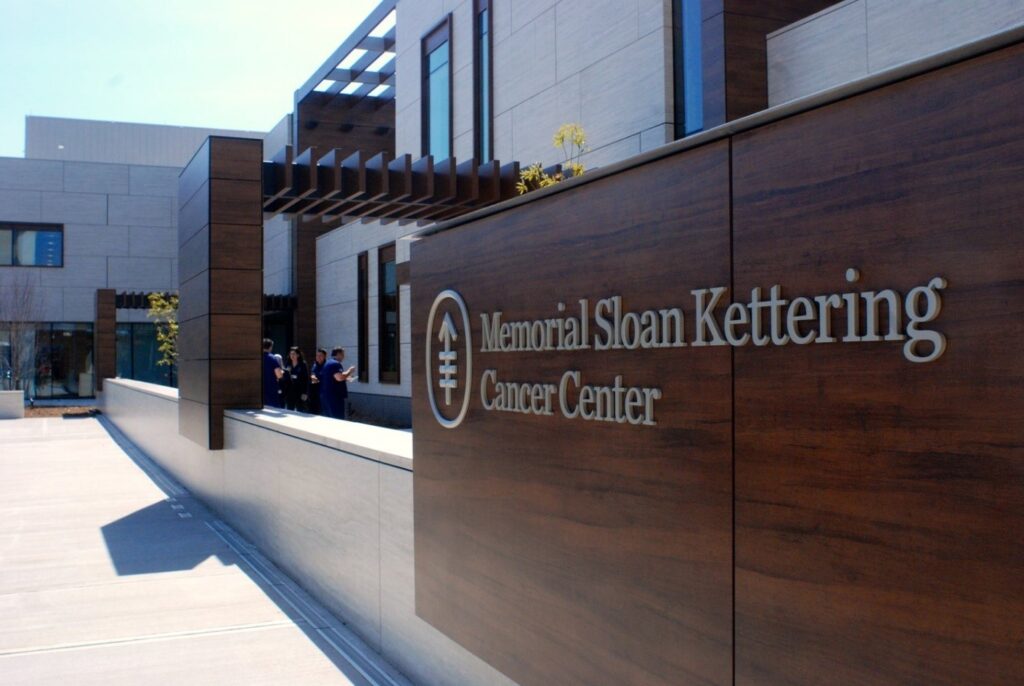
Memorial Sloan Kettering Cancer Center, located in New York City, is another highly respected cancer treatment center in America. It is known for its innovative cancer research and personalized treatment plans. The center offers a full range of cancer treatment services, including chemotherapy, radiation therapy, and surgery.
Read this: Tips on how to gain weight?
Dana-Farber Cancer Institute

Dana-Farber Cancer Institute, located in Boston, Massachusetts, is a world-renowned cancer treatment center specializing in cancer research and treatment. It has a team of more than 4,000 physicians and scientists dedicated to finding new and innovative ways to treat cancer. Dana-Farber offers various cancer treatment services, including chemotherapy, radiation therapy, and surgery. ( Cancer Treatment Centers of America )
Mayo Clinic Cancer Center
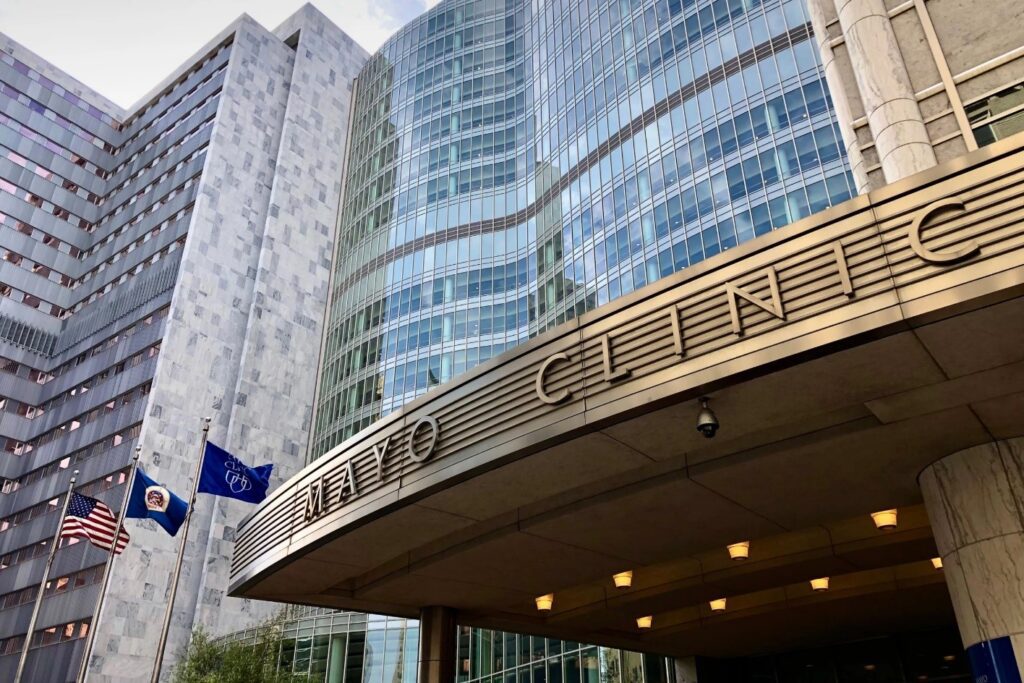
Mayo Clinic Cancer Center, located in Rochester, Minnesota, is America’s leading cancer treatment center. It is known for its personalized approach to cancer treatment and its team of expert oncologists. Mayo Clinic offers a full range of cancer treatment services, including chemotherapy, radiation therapy, and surgery. ( Cancer Treatment Centers of America )
Johns Hopkins Sidney Kimmel Comprehensive Cancer Center
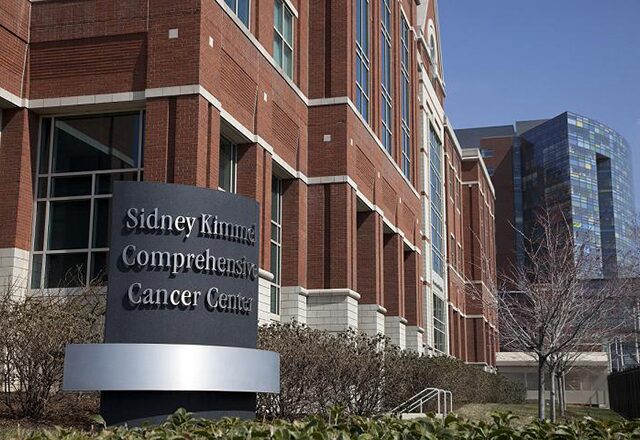
Johns Hopkins Sidney Kimmel Comprehensive Cancer Center, located in Baltimore, Maryland, is a leading cancer treatment center known for its innovative research and treatment options. The center offers a full range of cancer treatment services, including chemotherapy, radiation therapy, and surgery. It also has a team of experts who specialize in rare and complex cancers. ( Cancer Treatment Centers of America )
Cleveland Clinic Taussig Cancer Institute
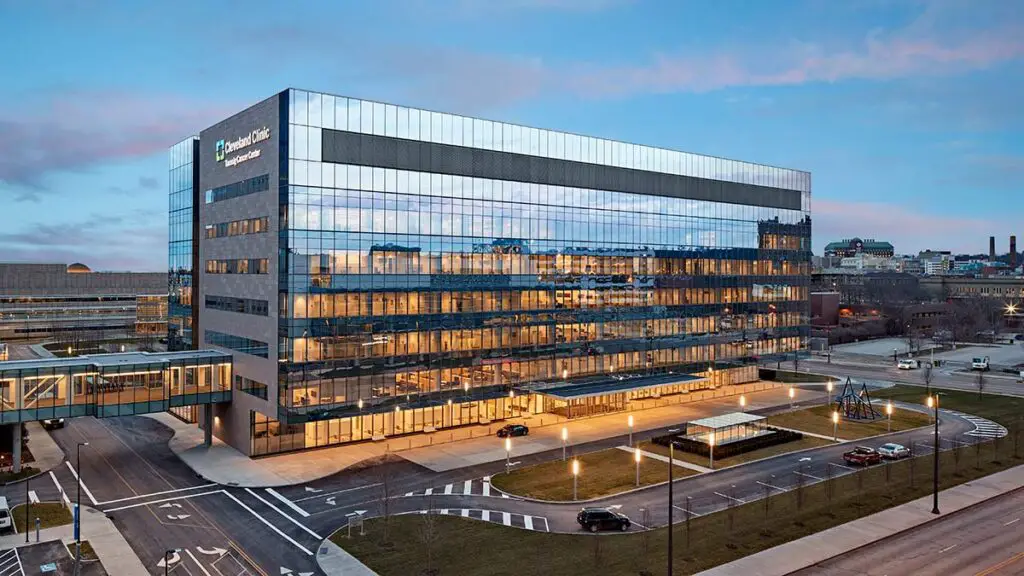
Cleveland Clinic Taussig Cancer Institute, located in Cleveland, Ohio, is a world-class cancer treatment center known for its multidisciplinary approach to cancer care. The center offers a full range of cancer treatment services, including chemotherapy, radiation therapy, and surgery. It also has a team of experts who specialize in specific types of cancer, such as breast and lung cancer. ( Cancer Treatment Centers of America )
Fred Hutchinson Cancer Research Center
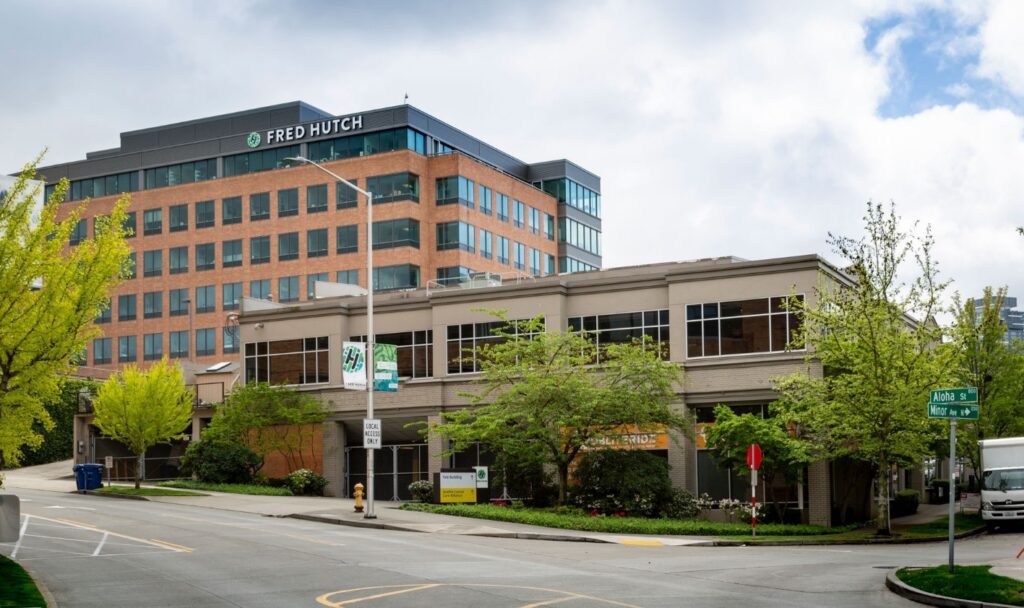
Fred Hutchinson Cancer Research Center, located in Seattle, Washington, is a leading cancer research center dedicated to finding new and innovative ways to prevent, diagnose, and treat cancer. The center has a team of more than 3,000 researchers and clinicians working together to improve cancer care.
Read this: How to grow healthy hairs naturally?
Conclusion
Cancer Treatment Centers of America is an innovative and comprehensive cancer care provider revolutionizing how cancer is treated. Their commitment to providing personalized care, advanced technology, and access to clinical trials is helping patients achieve better outcomes and live longer healthier lives. If you or a loved one is facing a cancer diagnosis, consider contacting CTCA to see how they can help. ( Cancer Treatment Centers of America )



